Managed Beehives for Your Property in the Philadelphia Area
Since 2010, The Best Bees Company has offered a unique, turnkey way for individuals and organizations to make a positive impact on the environment. Operating in Philadelphia since 2020, Best Bees is quickly becoming one of the leading beekeeping services in Philadelphia and throughout the Delaware Valley region.
We work with both residential and commercial clients.
Request a Phone Assessment
Find out if your property is right for bees
Our Mission
To expand the bee population while improving the health of honeybees and other pollinators here in Pennsylvania and across the world. Our locally certified beekeepers install and manage hives on your property and use the data we collect to drive the science of pollinator health forward with scientific partners that include Urban Beekeeping Lab, NASA, MIT and National Geographic.


Services Provided in the Philadelphia Area
We offer innovative solutions that can help bring your corporate sustainability programs to life. These include the highest standards on beekeeping, as well as developed workshops and programs that will engage your community — employees, guests, tenants, community leaders, and the public — in your sustainability work.
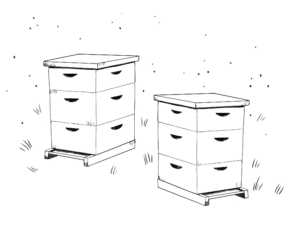
Commercial Services
Beekeeping for Your Residential Backyard
If you’d like to save bees, build a healthier environment, pollinate your garden, and have your own honey harvest, then our residential service is perfect for you! We offer turnkey beekeeping, honey harvesting, and DNA analysis designed for homeowners in a wide range of environments. Regardless of the size of your property — whether you garden on a balcony or have acres of land — we can install and manage one or several hives for you. .
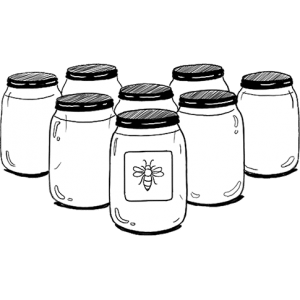
Residential Services
Beekeeping Education
We offer a number of educational programs at varying price points that have proven popular with commercial clients, schools, gardening clubs and organizations promoting sustainability.
Pre-recorded and live hive tours
Experience a guided tour as one of our bee experts takes you on a walk-through of your hive visits and inspections. Get a glimpse of the busy life of bees, and learn more on how to keep tenants engaged with their local environment. Live tours are available for up to 20 participants.
Meet an expert beekeeper
Participate in a beekeeper-led webinar and Q&A session. This virtual event is a great opportunity to learn about your bees through the lens of a beekeeper. We’ll discuss the data collected from your beehives, why bees matter, and what it's like to take care of your bees.
Virtual keynotes
Gain insight into the world of bees with our Chief Science Officer and Founder, Dr. Noah Wilson-Rich. Noah's knowledge of honeybee health and his passion for bee research will leave your audience spellbound, and with a wealth of new insight about our natural world. Our virtual keynote package includes signed copies of his book, The Bee: A Natural History.
We also offer free and open online programs, such as live meetings with beekeepers and educational webinars.
How Professional Beekeeping Works
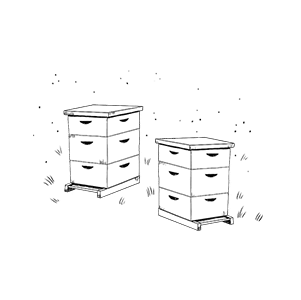
Installation
We help you choose an ideal location to establish one or more beehives at your home or workplace.
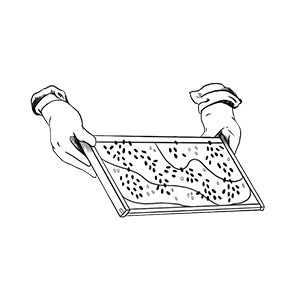
Maintenance
Our impassioned and experienced beekeepers service your beehives once a month, providing high-quality care and detailed reports.

Harvesting
You keep 100% of the raw honey produced. We’ll handle the rest— small batch extraction and bottling with personalized labels.
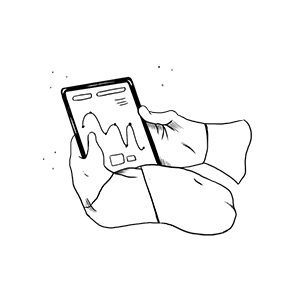
Research
At every visit, we collect data and share it with our research partners to advance the science of beekeeping and improve the health of pollinators worldwide.
Safe
Our honeybees, Apis mellifera ligustica, are the most docile species of honeybees, making our hives extremely safe and the instance of stings very unlikely.
We situate our hives in safe locations, secured from animal intrusion and weather damage.
Secure
Our beekeepers have extensive experience working in densely populated areas in and around Philadelphia, and are experts at safe hive placement on rooftops, balconies, and gardens. They’ll work with you to site your hives in visible, low-traffic areas, where you can safely enjoy observing your bees as they come and go.
Insured
Our beehives and beekeepers are fully insured for personal liability and damage. We can provide you with a Certificate of Insurance (COI) if needed.

Beekeeping Laws in the States of Delaware, New Jersey and Pennsylvania
Delaware, New Jersey and Pennsylvania all require beekeepers to register their hives with the State Department of Agriculture and send professional inspectors to check hives for infestation annually. New Jersey limits the number of hives you can keep to 3 per quarter acre, up to a maximum of 40 hives on one property. New Jersey also requires hives to be placed at least 10’ back from the property line, and 20’ from roads, sidewalks and paths.
Beekeeping is legal in most cities and towns in the area, but regulations vary by municipality, so check with your local health department if you’re considering keeping bees.
All of our beekeepers are locally licensed to use pesticides and are certified for safe roof-top work.
Philadelphia Service Area
We service hives in the city of Philadelphia and throughout the Delaware Valley region, from as far south as Newark Delaware, north to Easton PA, and east to Princeton, NJ, including the following counties:
Bucks county
Burlington County
Camden county
New Castle county Northampton County Montgomery County
Somerset County Union County Middlesex County
What's Included
- Site Evaluation
- Hand-crafted, all-natural beehive equipment installed onsite
- A colony of docile honey bees (Apis mellifera ligustica)
- Monthly maintenance visits and follow up reports
- Advanced scheduling so you can alert your team
- Full-time customer service team available by phone or email
- Raw honey, harvested and bottled just for you
- Replacement colonies provided at no cost
- Fully insured professional service
About Local Honey
Honey production varies from colony to colony, depending on the strength of the queen, the health of the hive and the availability of nourishment. New colonies tend to produce less honey than established ones. When there is a surplus of honey, we will harvest and jar it for you.
The composition and flavor of honey varies from hive to hive as well, depending on the floral species available to pollinate. This means that honey from your hive will have a unique profile. Tasting it, you’re tasting the composite of all the flowers your bees have visited!
Many of our residential customers are planting native species in their gardens to help both honey bees and native pollinators.
Pollinator Friendly Plants
At Best Bees, we encourage our clients to landscape their property with pollinator friendly plants, if space allows, add ground level and roof-top pollinator gardens, and use a variety of trees, shrubs and plants that will provide forage throughout the growing season. The Delaware Valley region, which lies between northern and southern ecosystems, has a very diverse plant life, and is hospitable to many flowering trees, shrubs and plants.
Consider planting pollinator-friendly native plants, such as Ohio spiderwort, bee balm, eastern coneflower, giant ironweed and aster — they look good in garden beds and naturalized in meadows.
Positively Pennsylvania and Gardenia.net have compiled lists of popular, pollinator-friendly native plants, which you can find at https://positivelypa.com/planting-for-pollinators/ and at https://www.gardenia.net/guide/great-pollinator-plants-for-pennsylvania.
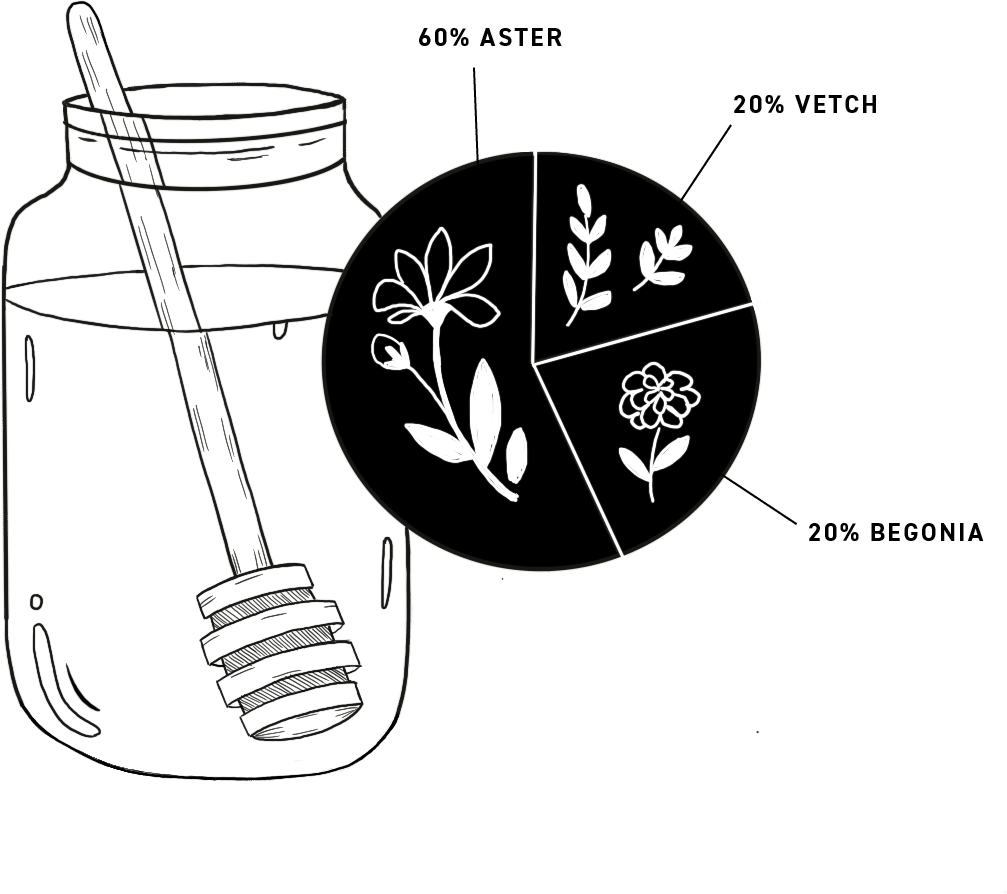
HoneyDNA
We pioneered the process of identifying the exact percentage of various pollen species found in honey through advanced genomic sequencing. Understanding where bees foraged reveals which plants best feed pollinators in the local environment.
Already Have a Hive?
At Best Bees, we’re proud to be a part of the local beekeeping community in every area in which we work. If not already a member of one of the area’s beekeeping associations, we encourage you to join one of state or municipal beekeeping organizations in your area:
- Delaware Beekeepers Association
- New Jersey Beekeepers Association
- Pennsylvania Beekeepers Association
- Philadelphia Beekeepers Guild
Join our Citizen Scientist movement! Here are some ways you can participate:
- Plant more pollinator habitats on your property
- Use bee-safe pesticide alternatives
- Get involved in local and national lobbying
- Submit your honey for HoneyDNA — these will be shared with our nonprofit partner The Urban Beekeeping Lab
You can also post your data to bee Citizen Science programs like iNaturalist, The Great Sunflower Project, and Beecology Project.
We gladly share the learning from our research and our best practices with everyone. To learn more about the findings of our research work, visit our Research page. To watch one of our many webinars, visit our Webinar and Video Resources page. Finally, to stay in the loop on our latest thinking, visit our Blog.
Unique Challenges and Opportunities to Beekeeping in the Delaware Valley
Erratic seasonal shifts, one of the many byproducts of climate change, are a growing problem for area bees in both the spring and fall. Rapid fluctuations from warm to cold confuse bees, who forage too early, before flowers are out, or shut down too soon, while forage is still available.
Extremes of heat — more common occurrences now in summer — can prevent beekeepers from treating hives with formic acid (a proven remedy for mite infestations). Warmer weather has increased the higher instances of hive beetle infestations, which is a significant problem for beekeepers throughout the Delaware Valley region.
The region’s shorter winters do mean longer growing seasons, which lead to more forage (food) for bees. These longer growing seasons and milder winters have led to excellent over-wintering rates, often in the 60-70% range — significantly better than most other northeastern cities.
Philadelphia is supportive of urban beekeeping, passing a resolution in 2016 to raise awareness about bees and their importance to the environment.
Victoria Rose, Best Bees Philadelphia area beekeeper, enjoys assessing problems and fixing them, and then watching the hives she manages thrive. She also enjoys talking with employees at corporate sites.
“When I show up in my beekeeper suit, I get a lot of questions," Rose says. “Many people are pleasantly surprised to find they have bees on their roofs!”
Bringing Innovative Beekeeping Practices to the Philadelphia Area
With every hive a datapoint, we’re able to observe bees in a wide variety of conditions and test alternative treatments in hives across the country. This allows us to introduce successful innovations to Philadelphia and take learning from our Philadelphia hives to other cities.
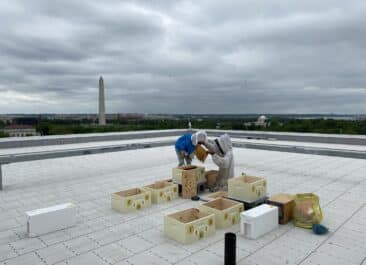
Frequently Asked Questions
We install and maintain honeybee hives on your property. Our expert beekeepers monitor the health of your bees and perform a variety of tasks throughout the year to help them thrive. At each visit, we also capture a range of metrics and share the data with renowned research partners to help the scientific community better understand the plight of pollinators. Towards the end of the season, we extract the honey and jar it for you.
About once per month for our Philadelphia Area hives. If your bees are distressed and need extra support, supplemental visits are included. We coordinate each visit in advance and send a summary report afterward.
Only a few square feet! A beehive takes up as little as 2’ x 2’ x 3’. Our beekeepers need a few feet around the hive to access it, and the bees’ flight path will need to be unrestricted.
In the Philadelphia area, we typically install hives when all threat of winter has passed, which is typically in late March-early April Installations after June are accommodated on a case-by-case basis, depending on our inventory levels.
We fully guarantee the health of our bees and queens. If a colony dies, we’ll replace it with a healthy one from our own stock at no additional cost. While we hope each of our hives will thrive for years to come, the reality is that pollinators are dying at an unprecedented rate. In Philadelphia, with a mild climate, a long growing season, and diverse plant life, we can still lose 30% or more of our hives each year.
Our Boston-based headquarters is staffed full time and available Monday through Friday during work hours by phone or email to answer any questions. When a colony requires extra attention, additional visits are made at no cost to you.
Yes, we provide a range of event support packages for our commercial clients. See Hive Programs for Commercial Customers for details.
Green roofs earn credits toward a building’s LEED (Leadership in Energy and Environmental Design) certification. Green roofs provide vegetation for water control, wildlife habitat, and better urban air quality. Honeybees can help maintain the green roofs that are becoming more common in big cities and thus contribute to a building’s LEED rating.
We service hives in the city of Philadelphia, and throughout the Delaware Valle — south to Newark Delaware, and north to Easton PA and east to Princeton, NJ, including the counties of Bucks County, Montgomery County, and New Castle County.
We handle visit scheduling for you. We’ll contact you at least 72 hours in advance via email.

